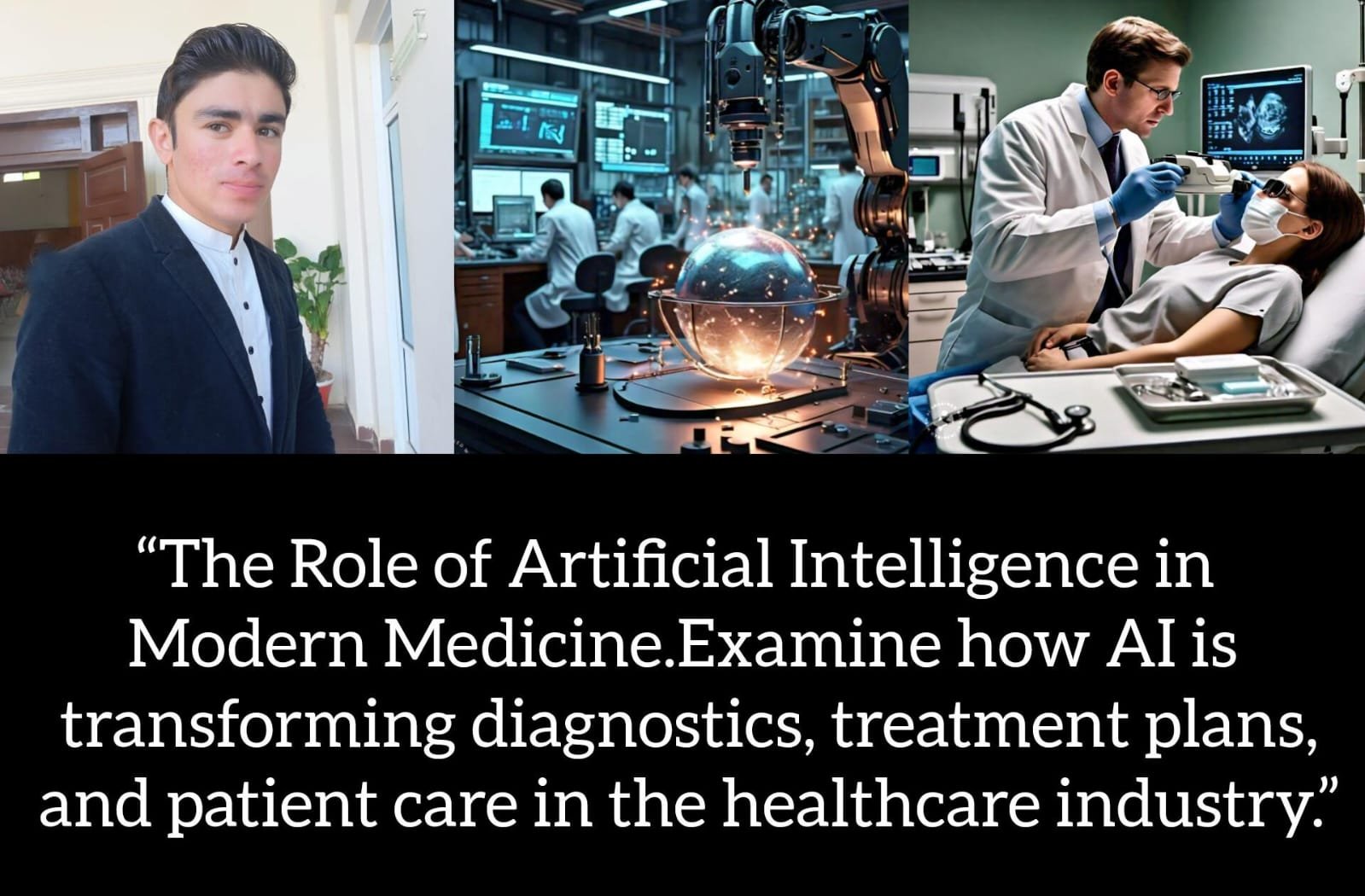Artificial intelligence (AI) has a revolutionized technology that is used for the drastically improving healthcare research and outcomes by producing more accurate diagnoses and enabling more personalized treatments. AI in healthcare’s ability to analyze vast amounts of clinical documentation quickly helps medical professionals identify disease markers and trends that would otherwise be overlooked.relonger the stuff of science fiction. In the realm of medicine, AI has emerged as a powerful tool, transforming how we diagnose diseases, develop treatment plans, and deliver patient care. This article delves into the exciting applications of AI in modern medicine, exploring its impact on diagnostics, treatment strategies, and the overall patient experience.
- AI-powered Diagnostics: A Sharper Eye for DiseaseTraditionally, diagnoses have relied on a physician’s expertise, often aided by medical imaging techniques like X-rays and MRIs. However, AI is augmenting these methods by offering several advantages:
- Enhanced Image Analysis: AI algorithms excel at pattern recognition. Deep learning models, trained on vast datasets of medical images, can identify subtle anomalies in scans that might escape the human eye. This can lead to earlier and more accurate diagnoses of diseases like cancer, heart conditions, and neurological disorders.
- Automating Repetitive Tasks: AI can automate time-consuming tasks like analyzing blood tests or pathology slides. This frees up valuable time for doctors, allowing them to focus on more complex aspects of patient care and build stronger relationships with their patients.
- Improved Efficiency and Accessibility: AI-powered diagnostic tools can be deployed in remote areas or resource-limited settings. Telemedicine platforms can leverage AI to provide preliminary diagnoses, making healthcare more accessible to underserved populations.
- AI in Treatment Planning: Charting a Personalized Course
- Predictive Analytics: AI algorithms can analyze a patient’s medical history, genetic makeup, and other factors to predict the potential course of their disease. This allows doctors to tailor treatment plans to the individual, potentially leading to better outcomes and fewer side effects.
- Drug Discovery and Development: AI can accelerate drug discovery by analyzing vast databases of molecules and identifying potential drug candidates. AI can also help optimize clinical trials by predicting patient responses and tailoring drug dosages.
- Robot-assisted Surgery: Robotic surgery systems, guided by AI algorithms, offer enhanced precision and minimal invasiveness. This can lead to faster recovery times, reduced post-surgical complications, and improved patient outcomes.
AI and Patient Care: AI is not meant to replace the human connection in healthcare. Instead, it aims to medical professionals to provide better care.

- Improved Communication and Education: Chatbots powered by AI can answer patient questions 24/7, provide medication reminders, and offer basic health information. This can empower patients to take a more active role in their health management.
- Mental Health Support: AI-powered chatbots and virtual therapists can offer initial support for mental health conditions, providing a readily accessible resource for those struggling with anxiety, depression, or other emotional challenges.
- Personalized Medicine: By analyzing a patient’s medical data and lifestyle choices, AI can generate personalized recommendations for preventative care and healthy living. This can help patients manage chronic conditions and avoid future health problems.
- The Road Ahead: Challenges and Consideration.While AI holds immense promise for the future of medicine, there are challenges to consider:
- Data Privacy and Security: Protecting sensitive patient data is paramount. Robust cybersecurity measures must be implemented to ensure that AI systems are not vulnerable to breaches.
- Algorithmic Bias: AI algorithms are only as good as the data they are trained on. Biases in the training data can lead to biased outputs. Careful selection and monitoring of training data is crucial to mitigate this risk.
- Transparency and Explainability: For AI to be widely adopted, there needs to be transparency in how it arrives at its conclusions. Doctors and patients need to understand the reasoning behind AI-generated recommendations.
Conclusion:
So in the above discussion it is concluded that the. AI are there integration of AI in medicine presents a transformative opportunity. By leveraging AI’s strengths in data analysis and pattern recognition, healthcare professionals can provide more accurate diagnoses, develop personalized treatment plans, and deliver more holistic patient care. As AI continues to evolve, it will undoubtedly play an even greater role in shaping the future of medicine, ushering in an era of precision medicine and improved health outcomes for all.
However, it’s important to remember that AI is a tool, not a replacement for human expertise and compassion. The future of medicine lies in a collaborative approach, where AI empowers medical professionals to deliver the best possible care for their patients.
Thanks!
Written By: Ejaz Ahmed






